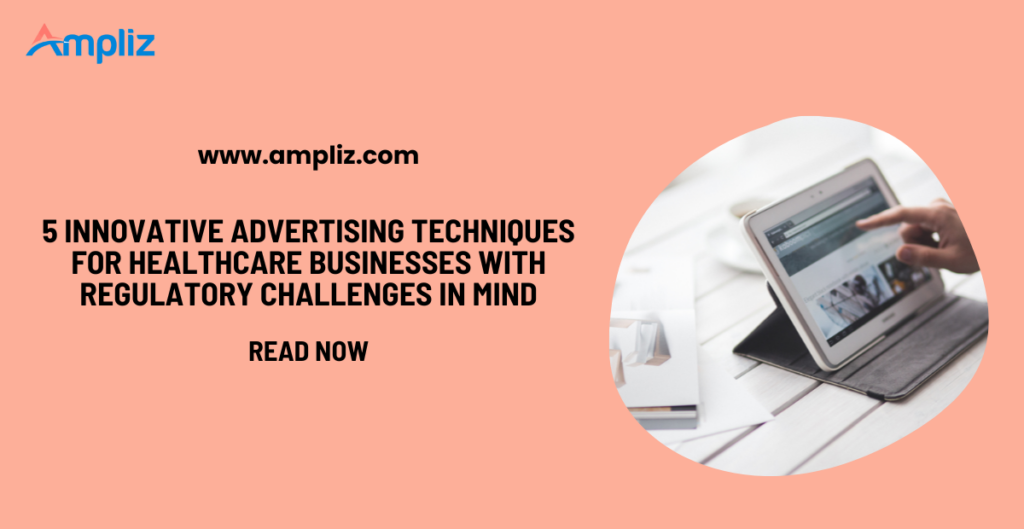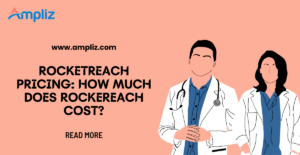Attracting new patients is always the ultimate goal for healthcare organizations, and it’s challenging to achieve without effective marketing.
Want to know what’s even more difficult? Trying to comply with regulations that govern advertising for healthcare.
Let’s explore the nuances of healthcare marketing, why compliance is so important, and some tools that can help you streamline your processes.
How Healthcare Marketing is Unique
- Healthcare marketing involves handling sensitive patient information.
- Healthcare marketers must adhere to ethical principles, including honesty, integrity, and transparency.
- Healthcare marketers target people facing health concerns. This means messaging needs to be empathetic, sensitive, and understanding.
- Healthcare marketing content aims to empower patients, inform healthcare decisions, and promote wellness.
- Healthcare organizations need to comply with specific regulations and guidelines, such as the Health Insurance Portability and Accountability Act (HIPAA), the Health Information Technology for Economic and Clinical Health Act (HITECH), and the Federal Trade Commission (FTC) regulations.
Why Compliance and Security are Imperative in Healthcare Marketing
Marketers in the healthcare industry must pay attention to compliance and security implications to protect patient privacy, ensure ethical practices, and maintain trust.
They must follow healthcare marketing laws, like HIPAA, GDPR, and the CAN-SPAM Act. By not complying with these regulations, healthcare companies could face lawsuits, regulatory sanctions, loss of patient trust, and damage to their reputation.
Let’s look at some examples of how companies can maintain compliance in their healthcare marketing strategies.
Form Health
Regulation on advertising medication is extremely strict to protect consumers.
Therefore, weight loss medications like Zepbound and the healthcare providers that prescribe them (like FORM Health) are required by law to comply with the Medicines Act of 2000 and not mislead consumers on the benefits or risks associated with it.
Fusion Medical Staffing
When promoting your services as a medical professional, certain regulations apply to how you can market yourself.
For example, if you’re a traveling physical therapist at Fusion Medical Staffing and you want to build a personal brand to promote your work, you can advertise your skills based on:
- What your patients say
- Factual information
- Certifications
However, since medical professionals have an ethical obligation to share medical advances, it’s unlikely that a physician or medical professional will have a truly exclusive or unique skill or remedy.
Claims that imply such a skill or remedy, therefore, can be deceptive. However, you can state, as a travel PT, that your skills are unique to a specific geographic region, if true. In short, never lie about your skillset as a medical professional.
Delta Remedys
The webpage for Delta Remedys’ Delta-8 gummies emphasizes lab-tested quality and stress relief benefits, which align with the ethical standards of healthcare marketing by focusing on product integrity and consumer well-being.
By highlighting the variety of flavors and hemp-derived cannabinoids, the advertising subtly promotes the product’s appeal without making direct health claims, thus adhering to advertising regulations.
Additionally, the use of transparent labeling and third-party testing results builds trust with consumers, a crucial aspect in healthcare where credibility is paramount.
Magic Hour
Other wellness products, not specifically in the healthcare industry, have much more flexibility when it comes to advertising.
For example, sleep-enhancing teas are beneficial due to their herbal properties and can thus be marketed on that basis. The FDA regulates tea, so any claims made must be accurate.
The tea’s health claims must be evaluated and screened to avoid consumer fraud. In order to achieve this, you need to first identify the specific category of tea for purposes of the Food, Drug, and Cosmetic Act. This is a challenging endeavor, as there are numerous potential applications for tea.
To ensure their credibility, Magic Hour provides a specific page with citations to their claims about the benefits of their tea.
Now, potential customers can easily access a verified study that confirms the advertised benefits of their sleep-enhancing tea.
Marketing and HIPAA: How To Stay Compliant
- Store protected health information (PHI) securely in an off-site data backup server.
- Ensure secure user authentication and login for each platform.
- Implement a Business Associate Agreement (BAA).
- Use end-to-end encryption.
5 Strategies to Enhance Your Healthcare Marketing
Without further ado, here are five simple (yet effective) ways you can improve your healthcare marketing.
1. Use Predictive Analytics and Customer Behavior Data to Retarget Customers
With predictive analytics and customer behavior data, you can retarget customers through personalized campaigns.
Get this data from your customer relationship management (CRM) software, website analytics, and patient feedback. Use customer surveys to collect the data you want and tools like Google Analytics and Marin Connect to collect and make sense of your marketing data.
2. Personalize Email Marketing Campaigns
Emails with personalized subject lines have an open rate that is more than 20% higher than those with generic ones, according to Adobe for Business.
Personalize your email marketing campaigns at every stage of the marketing funnel. Segment your email list based on different factors like demographics, behaviors, and preferences.
Then, tailor your email messages accordingly. Use tools like HubSpot or Constant Contact to streamline this process and set up automated workflows and triggers.
3. Influencer Marketing
Nearly 50% of consumers depend on influencer recommendations. And 69% of consumers trust what influencers have to say.
Expand your audience and boost engagement with influencer marketing. Include a stat. Look for influencers who share the same values as your brand and target audience demographics.
4. Utilize AI Appropriately
Use AI tools to streamline workflows and increase productivity. Examples include:
- Natural language processing for sentiment analysis
- Predictive analytics for campaign optimization
- Chatbots for customer service
5. Leverage Video
Include stats about video marketing. Focus on educational and informative videos that address patient concerns, showcase treatment or procedures, and highlight patient testimonials.
Keep videos engaging, concise, and visually appealing. Avoid medical jargon and overly promotional content.
A prime example of effective video utilization can be seen with We Level Up Treatment Centers. Through engaging reels and informative videos, they adeptly navigate sensitive topics surrounding mental health and addiction treatment while adhering to regulatory guidelines.
When they offer valuable insights and guidance within these constraints, they help establish trust and credibility with their audience.
These videos serve not only to educate but also to humanize the brand, fostering meaningful connections with those seeking support and understanding.
10 Top HIPAA-Compliant MarTech Tools
Are you ready to start advertising? Here are 10 HIPAA-compliant MarTech tools to consider as you prepare your next marketing campaign.
1. Marin
Marin Software is a digital advertising management platform that helps advertisers and agencies optimize their campaigns across search, social, and e-commerce channels.
Marin has three pricing plans, depending on features: Connect, Ascend, and One. The Ascend and One plans offer additional capabilities, including bidding, automated budget pacing, and AI-powered forecasting.
The One tier offers even more features, such as automation and management, from bulk uploads to dynamic campaigns.
Features:
- Forecasting and optimization options
- Intelligent dashboards and reports
- Cross-channel supporting
- Unified data model
- Powerful analytics
Pricing:
- Connect: $500+/month
- Ascend: Custom
- One: Custom
2. Piwik PRO
Piwik PRO is a data analytics platform that enables companies to analyze and map their customer journeys. Using this data, brands can make more informed marketing decisions.
The Core plan offers three modules: Analytics, Tag Manager, and Consent Manager. It also comes with 500,000 monthly actions (plus the option to purchase more) and 14-month data retention.
On the other hand, the Enterprise plan has four modules, including the ones from the Core plan, plus a Customer Data Platform. You also get more monthly actions: 2 million to 4 billion. Data retention starts at 25 months.
Features:
- Unlimited access to raw and unsampled data
- Integration and customization capabilities
- Built-in and custom reports for marketers
- Full customer journey analytics
- High-level security features
Pricing:
- Core plan: Free
- Enterprise plan: €10,995/year
3. Breadcrumbs
Breadcrumbs is a lead scoring platform that helps you easily score leads based on your ideal customer profile (ICP).
Breadcrumbs has four different pricing tiers. You get more contacts scored per month as the pricing tier increases. With the Enterprise Plan, you get expert services and a dedicated Slack channel.
Features:
- Automated lead scoring with Copilot
- Data-driven ICP insights
- Scoring model testing
- Business intelligence
Pricing:
- Free: $0/month (Up to 1,000 contacts scored per month)
- Pro Plan: $400/month (up to 10,000 contacts scored per month)
- Business Plan: $1,600/month (Up to 100,000 contacts scored per month)
- Enterprise Plan: $2,800/month (Custom contacts scored per month)
4. Constant Contact
(Image Source)
As an email marketing platform, Constant Contact enables businesses to create, send, and track email campaigns.
Each plan offers drag-and-drop email templates, AI content recommendations, and polls and surveys.
But only the Standard and Premium plans allow you to schedule email sends, use A/B testing, send automated welcome emails, and more.
When you purchase the Premium plan, you’ll have access to dynamic content in email, engagement heat maps, custom automation paths, Facebook Lookalike Ad targeting, Google Ads Manager, revenue reporting, and SEO recommendations.
Additionally, the Plus plan allows for an unlimited number of users, whereas the Lite and Standard plans limit it to 1 user and 3 users, respectively.
Features:
- Marketing automation Customer list management
- Facebook, Instagram, and Google Ads
- Lead-generation landing pages
- Customizable email templates
- Website signup forms
- Social posting
- Integrations
- Reporting
Pricing:
- Lite: Starting at $12/month
- Standard: Starting at $35/month
- Premium: Starting at $80/month
5. IZEA
This is an influencer marketing platform that connects brands and creators.
You can try out IZEA with a 10-day free trial. IZEA offers a range of solutions to meet your unique needs. For example, you can quickly find and hire influencers using the Creator Marketplace.
With IZEA Flex, you can scale your influencer marketing efforts. Using its comprehensive influencer marketing platform, you can find influencers, pay, track their performance, and more without any creator markups.
Or, you can leverage IZEA Managed Services, where you hire a full-service team to take care of everything for you.
Features:
- Content requests
- Content storage
- Creator offers
- Contrasts
Pricing:
- The Creator Marketplace: $6/month
- IZEA Flex: Starting at $130/month
- Managed Services: Starting at $100K
6. Zapier
Zapier is an automation platform through which you can connect apps and services to automate repetitive tasks, all without coding knowledge.
Through Zaps, automated workflows enable you to connect your apps and services together. You just set them up to react to specific events, like receiving a new email or entry in a spreadsheet. Then, the software will act in response. It may update a database or send a notification.
With the Free plan, you can automate basic workflows with 100 tasks per month. That means you’ll have access to the Zapier automation platform. You’ll also be able to leverage unlimited zaps and two-step zaps.
The Professional plan offers multi-step Zaps. This means you can add more workflow features to your Zaps, from conditional paths to trigger scheduling.
You’ll also have access to Zapier Webhooks, which allows you to build custom integrations. Premium apps and email support are additional features that come with the Professional plan.
The Team plan has everything in Professional, plus unlimited users, shared workspaces, shared app connections, Premier support, and SSO add-ons.
Features:
- Zaps and webhooks
- Collaboration tools
- Search actions
- App directory
- Task history
- CRM
Pricing:
- Free: $0/month
- Professional: $19.99/month
- Team: $69/month
- Enterprise: Custom
7. HubSpot
HubSpot is a comprehensive inbound marketing and sales platform that provides users with tools for content management, email marketing, social media marketing, and customer relationship management (CRM).
HubSpot’s Marketing Hub Professional includes 1,000 marketing contacts, while Marketing Hub Enterprise offers 10,000 marketing contacts.
Features:
- Omnichannel marketing automation
- Customer journey analytics
- Dynamic personalization
- Social media integrations
- campaign reporting
- customer reporting
Pricing:
- Marketing Hub Professional: Starting at $800/month (includes 3 seats)
- Marketing Hub Enterprise: Price starts at $3,600/month (includes 5 seats)
8. Grammarly
Grammarly is an AI-powered writing assistant that helps you improve your writing with real-time suggestions for grammar, punctuation, style, and tone.
Grammarly’s free version offers basic grammar and spell-checking capabilities. Premium offers more features, such as the ability to adjust your writing tone, rewrite full sentences, catch plagiarism, and generate text with 1,000 AI prompts.
Grammarly Business includes all the features of Premium along with additional administration and collaboration tools. For example, you can manage multiple accounts, set writing goals for the team, access centralized billing, and more.
Enterprise goes further by offering enhanced security and privacy, dedicated support, and unlimited generative AI prompts.
Features:
- Typo, spelling, and grammar corrections
- Full-sentence rewrites
- Custom style guides
- Tone suggestions
Pricing:
- Free: $0/month
- Premium: $12/month
- Business: $15/month
- Enterprise: Custom
9. Later
Later is a social media scheduling tool that lets you save time with automated publishing.
It comes with features like analytics, AI capabilities, and customizable link-in-bio pages.
The Starter and Growth plans let you schedule 30 posts and 150 posts per social profile, respectively. On the other hand, the Advanced and Agency tiers offer unlimited posts per social profile.
Features:
- Team and brand management tools
- Customizable link in bip pages
- Social media analytics
- Post scheduling
- Collab tools
Pricing:
- Starter: $16.67/month (1 social set, 1 user)
- Growth: $30/month (3 social sets, 3 users)
- Advanced: $53.33/month (6 social sets, 6 users)
- Agency: $133.33/month (15 social sets, 10 users)
10. Vimeo
Vimeo is a video marketing platform that allows you to create, edit, manage, and share videos.
Its free version comes with features like creating and editing, screen recording, and sharing and embedding.
The higher-priced tires offer different capabilities like privacy controls, brand kits, teleprompters, and more.
Features:
- Video creating, editing, and sharing
- Live broadcasts and webinars
- Auto closed captioning
- Custom video player
- AI script generator
- Screen recording
- Teleprompters
- Custom URLs
- Brand kit
Pricing:
- Free: $0
- Starter: $12/month
- Standard: $20/month
- Advanced: $60/month
It’s Your Turn
In this guide to compliant healthcare marketing, we hope you will walk away with valuable information on how to create marketing messages that resonate with patients and comply with regulations.
Ready to elevate your healthcare marketing with compliant, precision-driven strategies? Start your free trial today at Ampliz and unlock the tools you need to attract and retain patients confidently and compliantly.



